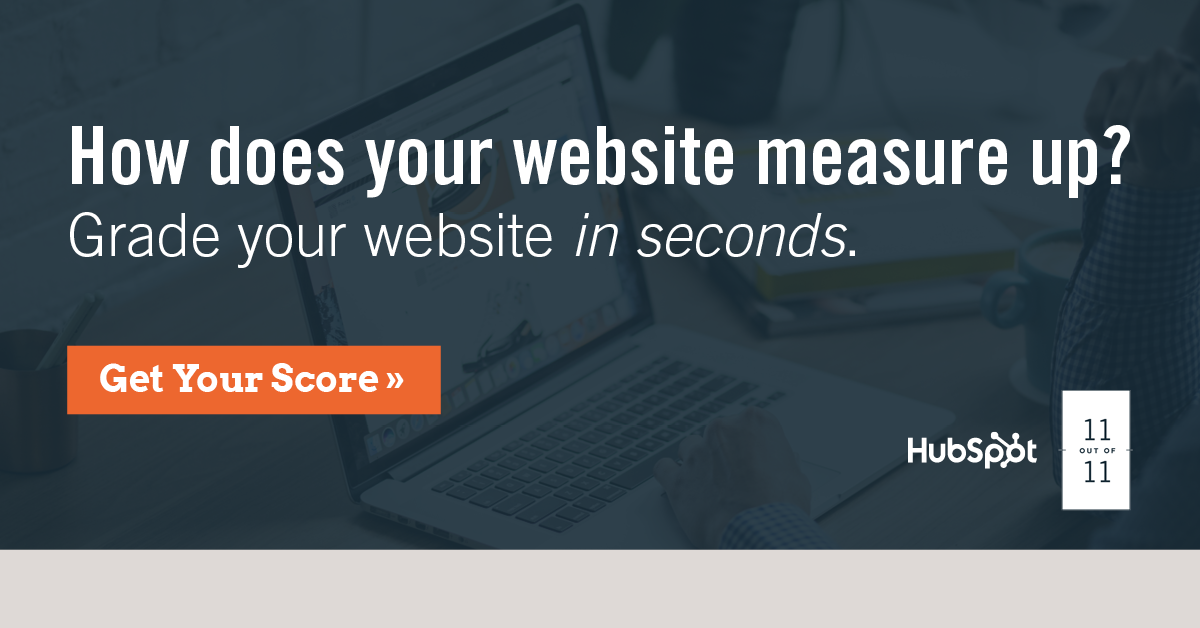Our Website Grader tool scans your website, evaluates crucial characteristics, and makes smart suggestions for supercharging performance – instantly.
What Is A Website Audit?
A website audit examines how the current pages on your website are performing. It determines whether your site is optimized to achieve your traffic goals. Once you see the results, you’ll also find out how to improve your website to increase performance.
How Often Should You Do A Website Audit?
You should do a website audit if:
- You don’t know how well it’s performing.
- It’s never been audited.
- It’s been a while since your last audit.
- You’re planning a website redesign.
- You want to make sure you’re getting maximum SEO and conversion results.
Inc.com recommends small businesses conduct SEO audits at least two times a year. Larger companies should expand to four audits a year. For companies that publish a lot of new content every month, they may want to consider reviewing site performance every quarter.
5 Benefits of a Website Audit
- To identify issues.
You can find things that are hurting Search Engine Optimization (SEO) and your lead generation efforts. You may find broken links, hidden content, long page load speed times, and more that are diverting traffic. Once you know what they are, it will be easier to fix them.
- To test SEO.
You can identify poor content habits such as keyword stuffing, exact match anchor text links, and others. This will help you strengthen your SEO efforts and improve your visitor experience. You won’t need to chase after constant changes to search ranking algorithms just to show up at the top of the search engine results pages (SERPs).
- To improve conversion rates.
You can spot any overlooked opportunities to convert visitors into leads, such as generic calls-to-action. You’ll know better how to optimize your landing pages to boost conversions.
- To optimize technical performance.
Testing your site’s technical framework and infrastructure along with your content performance helps you better assess how it works with search engines and how easy it is for people to navigate.
- To analyze competitive edge.
You can compare your website to your competitor's and see where you measure up. You can learn how your competitors are attracting visitors and getting conversions. You can determine potential new sources of revenue and brainstorm new tactics for capturing it.
Use our free Website Grader tool to perform an instant audit on your website, and gain more insights. Try It Now.
Elements of a Comprehensive Website Audit
Here’s what an audit can tell you about your website.
Navigation - How easily do people move around on your website, from your homepage to blog posts, to landing pages, and any other related content? Look for ways to optimize your website for maximum usability. Make sure your site is designed with your visitors in mind. What are they visiting your site for? Make it easy for people to get the information they're looking for.
Overall Speed – Does it take too long for your web pages to load in browsers? Does your site frequently stop working? Check to see if the image files are too large. The HTML and CSS should also be checked to make sure the coding is clean.
Content Quality – Does the content you’re publishing appeal to your target audience? Provide accurate information? Answer people’s questions? Give them resources that solve their challenges? If you can say yes to these, your content is high quality.
Search Engine Optimization - Make sure all of your web pages are following on-page SEO best practices like URLs, page titles, meta description, and copy. Conduct a keyword analysis to determine which keywords are giving you the biggest gains in traffic and leads. How much relevant content are you adding to your website to target those keywords?
Conversion Rate – Are your calls-to-action (CTAs), marketing offers, and landing pages optimized for conversion performance? Make sure they keep your visitors engaged with your content and your brand.
Design Responsiveness – Make sure your website is mobile-friendly. If you have response code errors appearing all over your website, it’s time to talk to your technicians about cleaning up broken links. Does your site have too-long URLs due to keyword stuffing? Simplify URLs so they’re easier for search engines to index.
Technical Evaluation - Search engines have trouble indexing sites with too much Flash or JavaScript. Make sure your site structure is search engine-friendly. Define how your web pages are crawled and indexed by search engines. To get more control over how your URLs appear in search results, choose a canonical URL as the preferred version of the page.
Grade your website in seconds. Learn how to improve it for free.
11outof11 Knows Website Audits
When you’re ready to implement improvements to your website after your free website audit, connect with 11outof11. Request a complimentary call with an 11outof11 expert. Contact Us To Learn More







.png)






